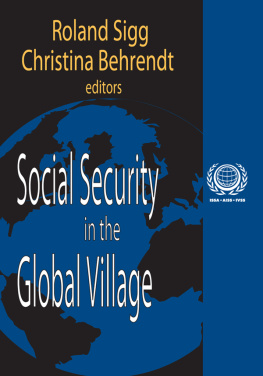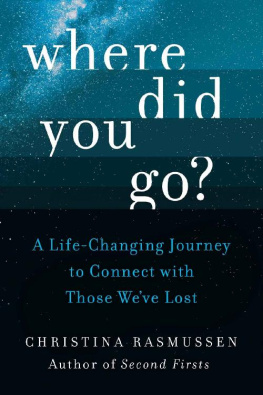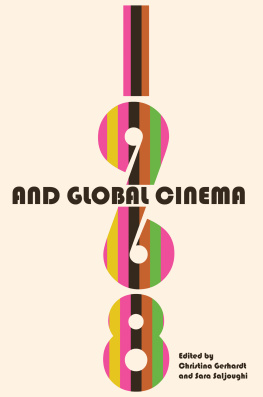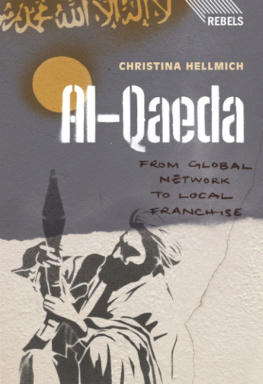First published 2012 by Left Coast Press, Inc.
Published 2016 by Routledge
2 Park Square, Milton Park, Abingdon, Oxon OX14 4RN
711 Third Avenue, New York, NY 10017, USA
Routledge is an imprint of the Taylor & Francis Group, an informa business
Copyright 2012 Taylor & Francis
All rights reserved. No part of this book may be reprinted or reproduced or utilised in any form or by any electronic, mechanical, or other means, now known or hereafter invented, including photocopying and recording, or in any information storage or retrieval system, without permission in writing from the publishers.
Notice:
Product or corporate names may be trademarks or registered trademarks, and are used only for identification and explanation without intent to infringe.
Library of Congress Cataloging-in-Publication Data:
Applying anthropology in the global village / Christina Wasson, Mary Odell Butler, and Jacqueline Copeland-Carson, editors.
p. cm.
Includes bibliographical references and index.
ISBN 978-1-61132-085-5 (hardcover : alk. paper)
ISBN 978-1-61132-086-2 (pbk. : alk. paper)
1. Applied anthropology. 2. Villages. 3. Community life. 4. Community development. 5. Culture and globalization. I. Wasson, Christina. II. Butler, Mary Odell. III. Copeland-Carson, Jacqueline.
GN397.5.A674 2011
306dc23
2011029638
Cover design by Piper Wallis.
Cover photograph: Street scene from Jaipur, India, January 2011.
Photograph by Patricia Cukor-Avila.
ISBN 978-1-61132-085-5 hardcover
ISBN 978-1-61132-086-2 paperback
Contents
Introduction
Global-Local Connections: The View from Applied Anthropology
Jacqueline Copeland-Carson, Mary Odell Butler, and Christina Wasson
Mary Odell Butler
Mari H. Clarke
Jacqueline Copeland-Carson
Susan Dewey
Shirley J. Fiske
Madelyn Iris
Susan Racine Passmore
Eve C. Pinsker
Christina Wasson and Susan Squires
Conclusion
Toward a Practice-based Ethnography in the Global Village
Jean J. Schensul and Mary Odell Butler
Introduction
Global-Local Connections: The View from Applied Anthropology
Jacqueline Copeland-Carson, Mary Odell Butler, and Christina Wasson
In the globalized world that is ours, maybe we are moving towards a global village, but that global village brings in a lot of different people, a lot of different ideas, lots of different backgrounds, lots of different aspirations.
Lakhdar Brahimi, Former Special Ambassador to the United Nations (quoted in Keisler 2005)
Throughout the world, the village has been both a place and an imagined community of harmony and cooperation (Anderson 1983). Today, the trope of the village has been extended to the global village, a metaphor for the complex interconnections of the contemporary world. Thinkers from Marshall McLuhan to Bill Gates have imagined and located the global village in new social relations created by international commerce, travel, communications, and the World Wide Web (McLuhan 1962, 1964; Gates n.d.). But the twenty-first centurys expanding global relationships are a double-edged sword. The very processes and technologies that bring us into ever-closer connection also create new opportunities for cooperation and conflict. As a social reality, the global village brings with it accelerated and escalating worldwide war, environmental degradation, pandemics, and more. As an imagined community, however, the global village inspires humanitys desire for a future of shared peace and prosperity, unleashing powerful global and local movements for human rights and social justice, such as the recent democratic uprisings in Tunisia, Egypt, and Libya.
Anthropology was born of villagesboth large and smallwhose early theoretical conceptualizations are now largely recognized as fictions of our fields colonial past, figments of a popular imagination of a mythic simpler time. Applying Anthropology in the Global Village highlights the contributions of todays applied anthropologists who are working at the cusp of new social relations and localities emerging in todays global economy. Our work has shown us that current theoretical formulations of place and identity do not fully capture the complexities of this era. At the same time, an alternative paradigm that fully expresses the nuances, tensions, creativity, new possibilities, social relations, conflicts, and challenges of the times is difficult to define. The global village as we construe it here is not a social theory or even a future that we necessarily espouse. Instead, it is a placeholder social construct with widespread cultural resonance that we use to orient this books core question: how do we understand, represent, explain, and influence the complex social relations that are emerging in our increasingly global world? Instead of imposing a definitive answer from established social or cultural theory, we recognize that associations of people, places, and identitiessuch as those inherent in various notions of the global villagecannot simply be taken as givens, but must be part of the research context to be studied (Gupta and Ferguson 1997). This book presents grounded ethnographic case examples from applied projects that might suggest new paradigms to inform theory across the multiple disciplines and fields in which we work.
Anthropologys development has been driven in large part by the effort to create paradigms that explain the astounding complexity of human experience. As the world has become increasingly interconnected, anthropologists are challenged to explain a contemporary social reality that seems qualitatively different from previous historical eras. Overnight international travel, instantaneous finance, and new information and communication technologies make our lives at once global and local. This book explores the global locality, the complex mosaic in which people live their lives in the first part of the twenty-first century. Now more than at any time in history, people are embedded in a multilayered community combining the global and the local, the innovative and the traditional, and the visible and invisible sociopolitical currents that run through their communities. These new environments are dynamic, ever-emerging, and rapidly shifting over time and space. Today, every human being on the planet negotiates these global localities. This context poses new challenges for all who seek to understand humans and their capacity to adapt to change. We consider how anthropologists apply their discipline to help resolve human problems in these new kinds of communities that emerge as people become intensely linked by global forces.
Anthropology provides a useful lens for understanding the complex changes of our increasingly global world. This field has contributed multiple theories to help explain the rapid-fire changes of a new social reality (see Appadurai 1996; Hannerz 1992; Marcus 1998; Ong and Collier 2004). But this book is not another anthropological treatise on the abstracted concept of globalization. Our purpose in this volume is not to propose new theories of globalization, although there are novel theoretical perspectives in some of the chapters.
Rather, we seek to illustrate the new connections and tensions that cut across various local contextsvillages, corporations, public agencies, and othersin an increasingly interconnected world, based on case studies from practicing and applied anthropologists. As applied anthropologists, we seek to develop new understandings of cultural systems at the nexus of the global and the local. Our work is unavoidably translocal. At the same time, our projects are not geared merely to passive descriptions of cultural systems as they change. Our work is often used actively to change, resist, and transform global-local interactions.








